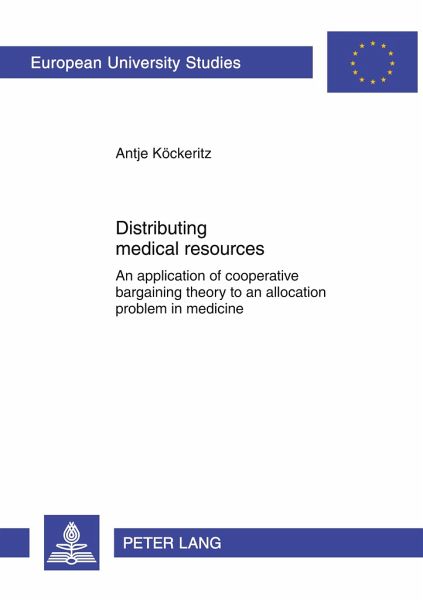
Distributing medical resources
An application of cooperative bargaining theory to an allocation problem in medicine
Versandkostenfrei!
Versandfertig in 6-10 Tagen
43,60 €
inkl. MwSt.

PAYBACK Punkte
0 °P sammeln!
Allocating scarce medical resources has become an important topic in public discussion. In the German statutory health system we are facing a situation of lacking adequate funds for all needs. The financial restrictions force us to use resources wisely. This emphasizes the need of general allocation rules and criteria applied in medical allocation situations. The purpose of this work is to implement and interpret properties of cooperative bargaining theory to special allocation situations in medicine. The author shows how the concepts of Nash and Kalai/Smorodinsky can be applied to a medical a...
Allocating scarce medical resources has become an important topic in public discussion. In the German statutory health system we are facing a situation of lacking adequate funds for all needs. The financial restrictions force us to use resources wisely. This emphasizes the need of general allocation rules and criteria applied in medical allocation situations. The purpose of this work is to implement and interpret properties of cooperative bargaining theory to special allocation situations in medicine. The author shows how the concepts of Nash and Kalai/Smorodinsky can be applied to a medical allocation problem and discusses implications of their properties and solutions for the German health system.












